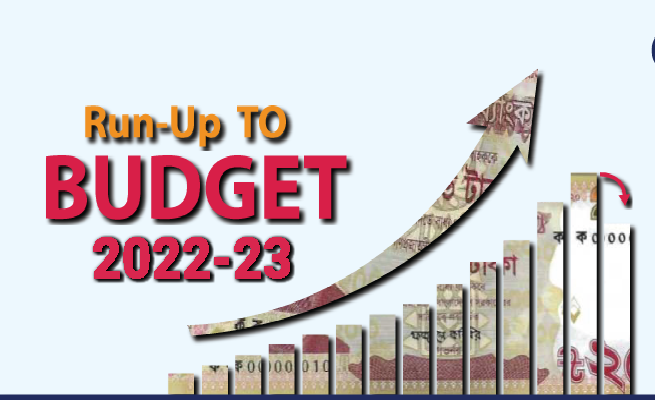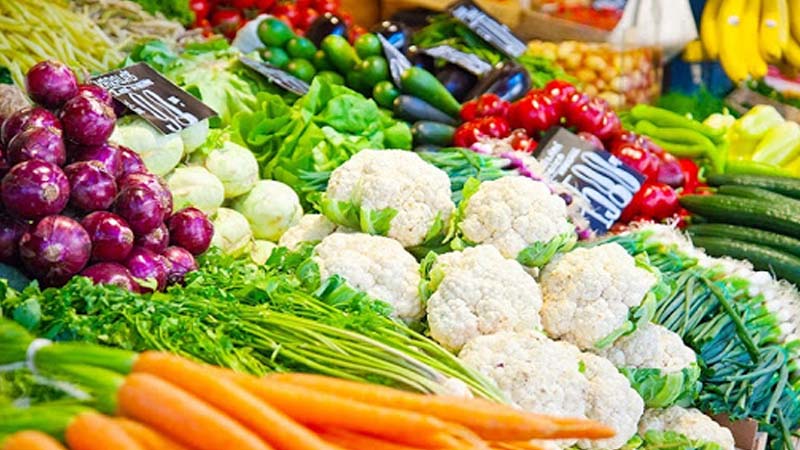For the first time, the government is going to shift its budget focus from GDP growth to inflation as the ongoing Russia-Ukraine war has skyrocketed the prices of essentials in the global markets and Bangladesh as well, officials of the finance ministry said.
Prime Minister Sheikh Hasina has directed the authorities concerned including the finance ministry and the National Board of Revenue to accept expansion in budget deficit at the cost of even keeping prices of essentials normal. Her directives came on Sunday at a meeting with top officials of the finance ministry and the NBR at her official residence Gonobhaban.
She also directed authorities not to hike tariffs on electricity and gas until December as the prices of essentials in international and local markets due to the Covid-19 pandemic and the ongoing war in Ukraine kept on rising.
Prime Minister Sheikh Hasina was quoted by one of the officials as saying that “Next year’s budget deficit may be above 6 percent of GDP but prices of essentials should not be allowed to rise.” Initially, the estimated budget deficit was estimated at 5.5 percent of GDP.
Sources in the finance division of the finance ministry said the budget deficit could be reduced in the revised budget in the middle of the ensuing fiscal year in December.
Meanwhile, during the last several years, national budgeting has been focusing on achieving GDP growth, now this is being changed, said an official of the finance ministry.
The main goal of the budget that will be presented in the second week of June is to control consumer price indexes created by import-driven inflation, the official added.
Officials involved in the preparation of the budget said that the crisis in the supply of goods due to the war in Ukraine has affected Bangladesh, as well. Although it is an agricultural country, most of the food products including rice, pulses, oil and sugar have to be imported to meet the needs of the large population.
Because of this import dependence, Bangladesh is experiencing maddening inflation. The official said there are several strategies in the ensuing budget to control inflation. These are: subsidy adjustment, social security expansion and import control. Sources said that the GDP growth rate in the next financial year could attain 7.5 percent. The government wants to keep inflation within 5.5 percent which reached 6.29 percent in April.
The total investment in the public-private sector is estimated to be 31.50 percent of GDP. Of this, 24.9 percent is expected to be invested in the private sector and 7.8 percent in the public sector, respectively. In order to make these budget estimates achievable, strategies are now being worked out.
The finance division has identified eight key challenges for the country’s economy for the fiscal year 2022-23, including crucial issues such as tacking import-driven inflation and securing enough funds to cover rocketing subsidies for oil, gas and fertiliser.
In the budget document, a chart of six imported products including international fuel oil prices, prices of rice, wheat, soybean, and fertiliser have been incorporated. Now, Brent crude oil has hit $120 per barrel as of May 30.
The prices of fuel oil and food have been witnessing upward trends ever since the Russian invasion of Ukraine took place in February. Compared to April 2021, fuel oil prices this April in the international market rose by 70 percent.
Since then, global prices of urea fertiliser tripled, soybean oil prices rose by more than 40 percent, wheat prices by 80 percent and sugar by 25 percent, respectively.
Four other major challenges, as per budget are: facilitating private sector investment for employment generation, stabilising the forex reserves while keeping necessary imports uninterrupted, keeping bank loan interest rates unchanged and boosting revenue.
Also, the government prefers delaying the implementation of less-major development projects and expanding the scope of social safety net programmes.
In the budget for fiscal year 23, the government is allocating Tk 82,745 crore or 1.90 per of the GDP for providing subsidies and incentives, for an increased demand for such endowments over some products. These products include fuel oil, edible oil, electricity, gas and fertiliser.
The finance division initially estimated electricity subsidy to be at Tk 18,000 crore, LNG Tk 17,300 crore, and fertiliser Tk 15,000 crore, respectively. The officials at the finance ministry said the price of fertiliser could not be raised because of its negative impact on the farm sector.
Director of the Policy Research Institute of Bangladesh Dr. Mohammad Abdur Razzaque told Bangladesh that the International Monetary Fund advised the governments across the globe to provide subsidies for energy and fertiliser to contain the prices of essentials in their respective local markets.














